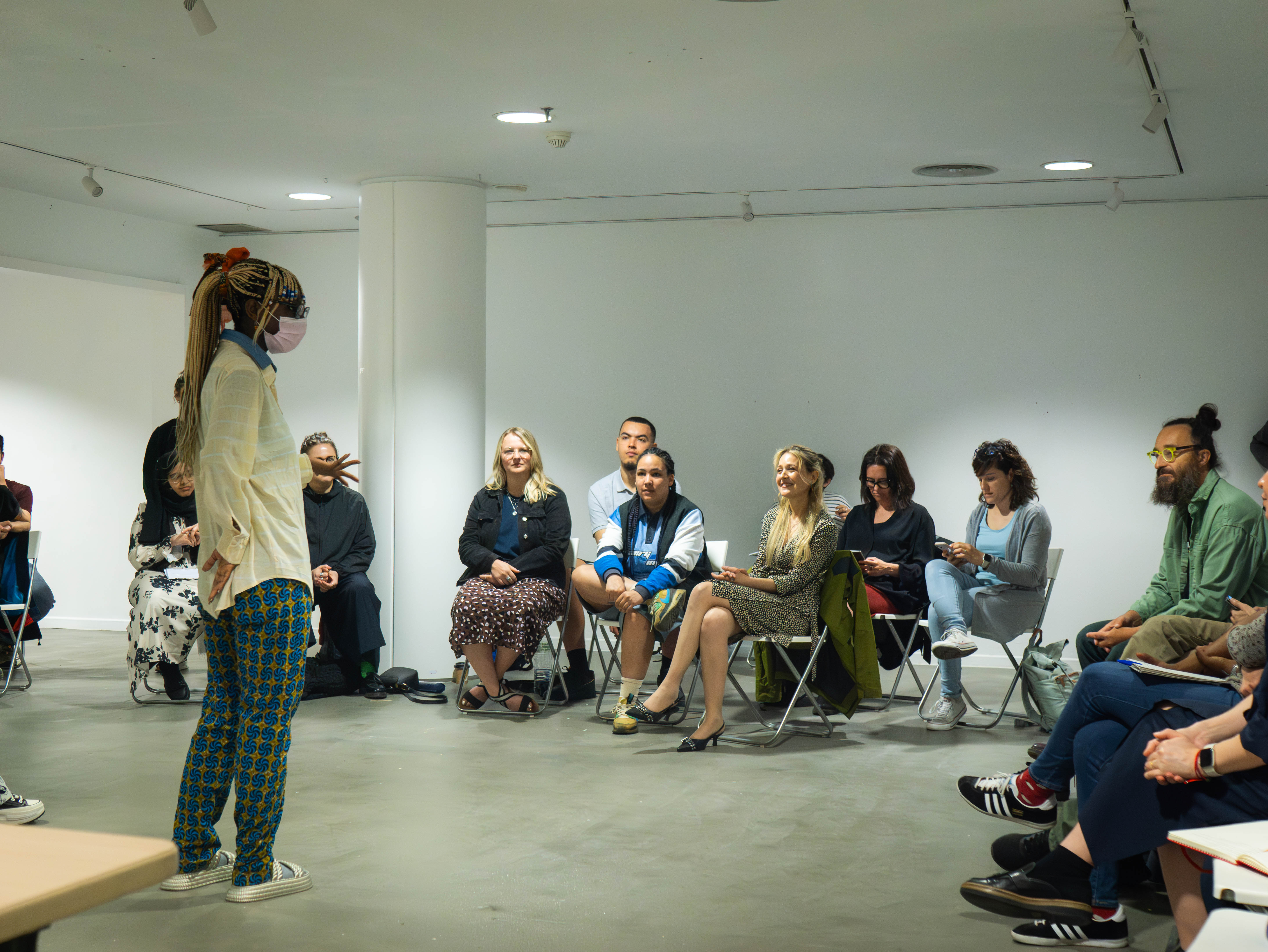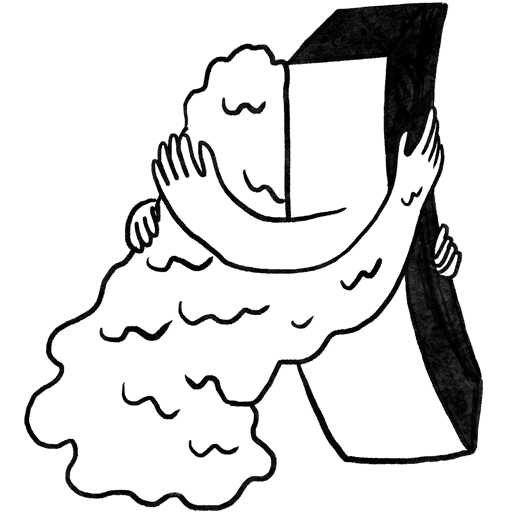
Hypothesis
The fact that it is not visible does not mean that it does not need to be worked on. Given the progressive incorporation of new identities into the national health system, it is increasingly common to observe certain deficiencies linked to an intersectional approach in mental health. Learning from young people in Barcelona or Manchester about how their cities deal with these issues is more necessary than ever. Listening to the people concerned, especially young people, and putting their recommendations at the centre, is one of the priorities to be addressed in a Europe that is torn between openness and rejection of plurality.
In this document we present some of the recommentations about intersectional mental health proposed by young people between 16 and 29 years old through three processes: Mindset Revolution held in Manchester, and Foro Joven and CoActuem per la Salut Mental held in Barcelona.
- Why are young people so important in the design of mental health policies?
- What is the reality of a youth that defines itself as the generation of extinction?
- Is it possible to integrate an intersectional approach to mental health?
Half of adulthood mental health challenges begin by the age of 14, and 75% of health issues are established by the age of 24, making the need for youth focus clear. Emotional disorders, particularly anxiety and depression, among young people are on the rise, also as a result of the long-term impact of the pandemic, which led to increased isolation and stress. In the UK, rates of probable mental health disorders increased from 11.6% to 17.4% between 2017 and 2021 for six to 16-year-olds. Among 17 to 19-year-olds, rates increased from 10.1% to 17.4% In Spain, 59.3% of Spanish young people between 15 and 29 years old acknowledge suffering from mental health problems, according to the FAD and there was a 47% increase in mental health disorders in minors after the pandemic according to the Spanish Association of Pediatrics.
Data shows that the existence and development of mental disorders occurs in bigger proportions in certain groups based on gender, socioeconomic and immigration status, identities, among others. People who lie at intersections of the most affected groups are the ones who tend to face most mental health challenges.
Story of me: Why do we think this question is relevant to our ethical compass ?
While there is much literature on (growing) health inequalities, there is still limited attention to ways of embedding an intersectional approach to mental health care. Mental health is complex and often depends on experiences, stressors, and socio-economic dynamics, and how these interacts with a person’s multiple and intersecting identities. Mental health and how we cope with mental health challenges are inevitably affected by gender, class, race, ethnicity, age, religion, culture, spoken language, sexuality, and immigration status, among many other identities. In our work we found that young people experience multiple intersectional discriminations as they navigate mental health support in the health system as in educational settings.
Story of us: a series of objective data to back up the idea
Evidence that children and young people are more likely to have poor mental health if they experience living in poverty; parental separation,financial crisis or parents with poor mental health. In Spain, people with the means to meet their material needs who suffer from mental health disorders represent 53%, while people that live in precarious conditions represent 68%. When talking about gender, among young people, men with mental disorders represent 52%, while women represent 67%. In the UK, women are three times more likely than men to experience common mental health problems. Also, young people who identify as LGBQT+ are also more likely to suffer from a mental health condition, which are exacerbated by inequalities in accessing appropriate support.
Additionally, structural racism and discrimination along class, gender, or sexuality often cause and/ or exacerbate poor mental health. An intersectional lens that could help understand the impact of intersectional oppression on youth mental health is often missing from research and policy.
Regarding the mental health system, in the UK there is chronic underfunding, which means that around 75 per cent of young people experiencing a mental health problem are forced to wait so long their condition gets worse, or they are unable to access any treatment at all. According to UK doctors, funding and staffing levels are not sufficient to provide appropriate mental health support.

We are also not creating safe environments for our young people. In Spain, among those who have shared their psychological problems with their environment, the most common thing is to turn to friends (28.3%) or family (17.2%), to a lesser extent to other people (8.8%) and practically residual to teachers (0.6%). A phenomenon that also affects health professionals. The fact that almost 4 out of every 10 young people in Spain (36.4%) acknowledge having felt loneliness at some time and that the proportion of young people who have experienced it with some or very frequency amounts to 45.3% may be a reflection of this lack of safe spaces.
Young people are too often studied rather than actively and meaningfully engaged in policymaking that affects them directly and where their lived experience can shed light on policy and research gaps. This is particularly important on mental health, which has long term repercussions on all parts of their current and future lives.
Story of now: How do we answer this question?
Between 2022 and 2024, we worked and researched with young people (16-25) in Greater Manchester and Barcelona through a series of participatory research and participatory democracy projects on youth mental health. We used Legislative Theatre, digital participation and participatory research methods to rethink mental health from the perspective of young people, diverse along class, ethnic background, and gender lines. With young people at the forefront of this work we have developed ideas that can help change the way society thinks about mental health and the way mental health services, schools and colleges support young people experiencing mental health challenges. Legislative Theatre is about creating a performance based on people’s lived experience to develop new policies and practices. Young people created two plays representing their experience of trying to access mental health support, which highlighted the intersectional oppressions they often experience.
In both Manchester and Barcelona, young people worked with an audience of community members and policymakers and through a performance they challenged the rules that prevent them from getting the support they need and deserve, and they co-created policy proposals that can make a difference to their wellbeing. The young people also designed a participatory process online to map problems surrounding mental health that young people want to talk about and gather ideas to address these problems. In the case of Barcelona, the Youth Forum, an assembly took place made up of 99 young people between 16 and 29 years old, who met to make a series of recommendations to Barcelona City Council on what youth policies, answering a question initial question that was formulated: as a young person living in Barcelona, what would you need to carry out your lifelong project?
Young people need to be at the forefront of policy making on youth mental health
As part of our work, we also enabled young people to self-evaluate their own experience of participation and perceived social impact. This process recognises the importance of lived experience to shape policies and understand their impact. It also helps shift the focus from people’s behaviours and weaknesses to processes and practices, challenging models of care that frame people as victims, rather than active participants. Young people benefitted on multiple levels, as they built confidence and democratic skills in the process, which can also positively impact their mental wellbeing.
By engaging in participatory processes and participatory research, young people co produced policy recommendations for intersectionality inclusive mental health support.
Check the policy recommendations here:

This project has been carried out in two phases, the first in Manchester and the second in Barcelona.
Phase 1: Led in Manchester by Sonia Bussu at the University of Birmingham. In collaboration with: Platoniq, Katy Rubin, The Manchester Metropolitan University, Youth Focus North West, 42nd Street and Reform Radio.
Phase 2: Co-led in Barcelona by Sonia Bussu and Platoniq. In collaboration with: Katy Rubin, 42nd Street and Zara Eve.
The project is supported by the Open Society Foundations.
Platoniq’s participation in this project has been made possible thanks to ALDA. European Association for Local Democracy and the Citizens, Equality, Rights and Values Programme (CESV) of the European Commission.




